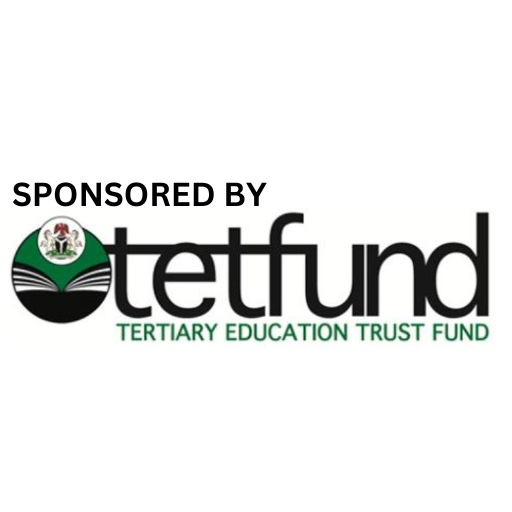Soft Skills and Academic Performance of Secondary School Students in Mathematics: A Relationship Study
DOI:
https://doi.org/10.63561/fnas-jmse.v6i4.916Keywords:
Soft Skills, Performance, Mathematics, Secondary School, StudentsAbstract
This research examined the correlation between the soft skills of secondary school students and their Mathematics performance in Bayelsa State. Soft skills like communication, teamwork, self-discipline, flexibility, and problemsolving are becoming widely acknowledged as necessary for the academic performance of students. The design used in the study was correlational, and the sample size was 1,096 senior secondary school students (SS 1 and 2) who were randomly selected using a stratified random sampling method from Bayelsa State public and private secondary schools. Data were collected using the Soft Skills Assessment Questionnaire (SSAQ)—a 15-item instrument rated on a 4-point Likert scale—and students’ end-of-term Mathematics grades. The SSAQ was found to be highly reliable with a Cronbach's alpha of 0.77. Descriptive statistics and Pearson product-moment correlation were employed to test the data. The results revealed that the majority of students had moderate soft skills and Mathematics performance; a strong positive correlation was found between soft skills and Mathematics performance (r = 0.76, p = 0.00), suggesting that students with higher soft skills tend to perform better in Mathematics. The study concludes that soft skills are a significant predictor of mathematical success and recommends the inclusion of structured soft skills training in the senior secondary school curriculum to enhance students’ academic outcomes.
References
Abdullahi, A., & Salihu, I. (2022). Integration of soft skills in Mathematics classrooms: A study of selected secondary schools in Nigeria. African Journal of Educational Studies, 12(2), 55–68.
Adebayo, F. O., & Alabi, T. S. (2021). Teachers’ digital competencies and soft skills development in Nigerian secondary schools. Nigerian Journal of Educational Research and Evaluation, 20(1), 72–85.
Adeyemo, D. A. (2010). The relationship between emotional intelligence and academic achievement of undergraduates. Educational Research and Reviews, 5(10), 571–575.
Akinnaso, N. (2023). Soft skills and the crisis of education in Nigeria. Journal of African Educational Reform, 7(2), 33–45.
Bello, A., & Musa, K. (2021). Emotional intelligence and problem-solving skills as predictors of Mathematics achievement among secondary school students. Journal of Education and Practice, 11(4), 87–96.
Brackett, M. A., & Rivers, S. E. (2019). Enhancing academic performance and social and emotional competence with the RULER feeling words curriculum. Learning and Instruction, 60, 156–170.
Busaka, C., Umugiraneza, O. & Kitta, S. (2022). Mathematics teachers’ conceptual understanding of soft skills in secondary schools in Zambia. EURASIA Journal of Mathematics, Science and Technology Education, 18(7), 21-28. https://doi.org/10.29333/ejmste/12160
Casali, N. & Meneghetti, C. (2023). Soft skills and study-related factors: Direct and indirect associations with academic achievement and general distress in university students. Educational Science, 13, 612. https://doi.org/10.3390/educsci13060612
Choudhary, R. S. (2022). Level of soft skills among under-graduate students of Agriculture University, Jodhpur. M.Sc. Thesis, College of Agriculture, Agriculture University, Jodhpur. https://krishikosh.egranth.ac.in/handle/1/5810208437
Conley, D. T. (2015). A new era for educational assessment. Eugene, OR: Educational Policy Improvement Center (EPIC). https://epiconline.org/publications/
Creswell, J. W., & Creswell, J. D. (2018). Research design: Qualitative, quantitative, and mixed methods approaches (5th ed.). SAGE Publications.
Duckworth, A. L., & Seligman, M. E. (2005). Self-discipline outdoes IQ in predicting academic performance of adolescents. Psychological Science, 16(12), 939–944. https://doi.org/10.1111/j.1467-9280.2005.01641.x
Duckworth, A. L., Peterson, C., Matthews, M. D., & Kelly, D. R. (2007). Grit: Perseverance and passion for longterm goals. Journal of Personality and Social Psychology, 92(6), 1087–1101.
Feraco, T., Mammarella, I. C., & Meneghetti, C. (2024). The relation between soft skills and arithmetic performance. The Journal of Experimental Education, 3, 1–20.
Hashim, N. & Osman, K. (2025). Soft skills and academic achievement among STEM Students. International Journal of Academic Research in Progressive Education and Development, 14(1), 273-286. DOI:10.6007/IJARPED/v14-i1/24449
Heckman, J. J., & Kautz, T. (2012). Hard evidence on soft skills. Labour Economics, 19(4), 451–464.
Kamaruddin, A., Mubin, J. & Roshidah, M. (2020). The emergence of STEM. In C. C. Johnson, E. E. Peters-Burton, dan T. J. Moore (Eds.), STEM road map: A framework for integrated STEM education (pp. 13-22). NY: Routledge Taylor & Francis Group.
Kamarul (2017). Exploring the related factors in students’ academic achievement for the sustainable education of rural areas. Sustainability, MDPI, 11(21), 1-22.
Kayii, N. D., & Okiridu, B. (2020). The role of cooperative learning on students’ achievement in Mathematics. Journal of Education in Developing Areas, 28(1), 147–156.
Kuh, G. D., Kinzie, J., Schuh, J. H., & Whitt, E. J. (2008). Student success in college: Creating conditions that matter. John Wiley & Sons.
Kyllonen, P. C. (2013). Soft skills for the workplace. Change: The Magazine of Higher Learning, 45(6), 16–23.
Mullis, I. V. S., Martin, M. O., Foy, P., Kelly, D. L., & Fishbein, B. (2020). TIMSS 2019 International results in Mathematics and Science. TIMSS & PIRLS International Study Center, Boston College.
Narita, H. & Nur, S. (2024). Improving academic achievement through soft skills and social engagement in border students. Proceedings of International Conference on Applied Social Science in Education 2024, 1(1). https://doi.org/10.31316/icasse.v1i1.6876
Nigerian Economic Summit Group (NESG). (2022). Education and employability in Nigeria: Bridging the Soft Skills Gap. https://nesgroup.org/publications
Nur, L. & Noorhayati, K. (2017). Creativity amongst final year students of polytechnic diploma. Journal of Ilmi. Jilid 7, 75 – 86.
Obafemi, K. E., Saadu, U. T., Adesokan, A., Yahaya, O., Sulaimon, J. T., Obafemi, T. O., & Yakubu, F. M.
(2023). Self-Efficacy as A Correlate of Pupils’ Academic Achievement in Mathematics. Indonesian Journal of Teaching in Science, 3(1), 1–10.
OECD. (2015). Skills for social progress: The power of social and emotional skills. OECD Publishing.
OECD. (2019). Future of education and skills 2030: OECD Learning Compass. https://www.oecd.org/education/2030-project/
OECD. (2022). PISA 2022 Mathematics Framework. Organisation for Economic Co-operation and Development. https://www.oecd.org/pisa/publications/pisa-2022-mathematics-framework
Okafor, C. E., & Obiora, O. C. (2021). Assessment of soft skills among secondary school students in Mathematics problem-solving in Anambra State, Nigeria. International Journal of Mathematical Education in Science and Technology, 52(7), 1049–1060. https://doi.org/10.1080/0020739X.2020.1868592
Okolie, U. C., & Omeje, H. O. (2018). Students’ poor performance in Mathematics: Causes and solution. Journal of Mathematical Sciences Education, 3(1), 50–60.
Onabamiro, A. T., Onuka, A. O. U., & Oyekanmi, S. A. (2014). Teachers’ perception of teaching and assessing soft skills in secondary schools. Education, 4(5), 109-115. Doi: 10:5923/j.edu201404405.01
Schleicher, A. (2018). World class: How to build a 21st-century school system. OECD Publishing.
Schneider, M., & Preckel, F. (2017). Variables associated with achievement in higher education: A systematic review of meta-analyses. Psychological Bulletin, 143(6), 565–600.
Shah, A. A., Ahmad, N., Sadaf, Ali, F., & Khan, M. (2024). Impact of emotional intelligence on academic achievement at secondary level in District Mardan. Qlantic Journal of Social Sciences, 5(2), 26-33. https://doi.org/10.55737/qjss.591347376
Shajimon, P. P. & Joseph, S. (2018). A relationship study between soft skills and academic achievement of higher secondary students. International Journal of Creative Research Thought, 6(2), 78-82.
Shukor, N. A., Ramli, M. R., & Ahmad, S. N. (2023). Project-based learning and soft skills development in secondary school Mathematics: A Malaysian experience. Journal of STEM Education Research, 6(1), 22–39. https://doi.org/10.1007/s41979-023-00106-7
UNESCO. (2016). Education for people and planet: Creating sustainable futures for all. Global Education Monitoring Report.
UNICEF Nigeria. (2021). Learning passport Nigeria: Accelerating learning recovery and skills development. https://www.unicef.org/nigeria/reports/learning-passport-nigeria
Van Teijlingen, E., & Hundley, V. (2001). The importance of pilot studies. Social Research Update, (35), 1–4. http://sru.soc.surrey.ac.uk/SRU35.html
Vasanthakumari, S. (2019). Role of professionalism in teacher education. Journal of Humanities and Social Science, 24(1), 33–36.
WAEC. (2020 & 2021). Chief Examiners’ Reports on May/June West African Senior School Certificate Examination (WASSCE): Mathematics. West African Examinations Council.
WAEC. (2023). West African Senior School Certificate Examination Grading System. https://www.waecnigeria.org
World Bank. (2020). Nigeria education sector analysis: Better Education Service Delivery for All (BESDA). https://documents.worldbank.org/en/publication/documentsreports/documentdetail/5841816007461895
40
World Economic Forum. (2023). Future of jobs report 2023. https://www.weforum.org/reports/future-of-jobsreport-2023
Yusuf, A. (2024). The role of soft skills in secondary school students’ academic performance in Nigeria. Nigerian Journal of Educational Research and Evaluation, 23(1), 52–67.







